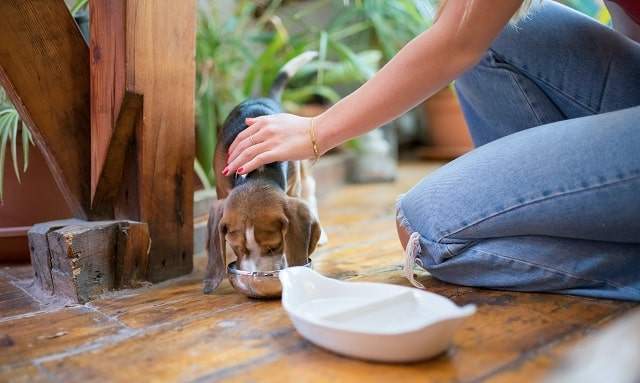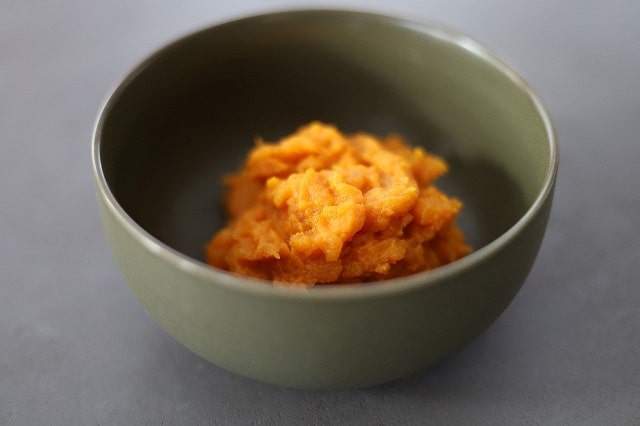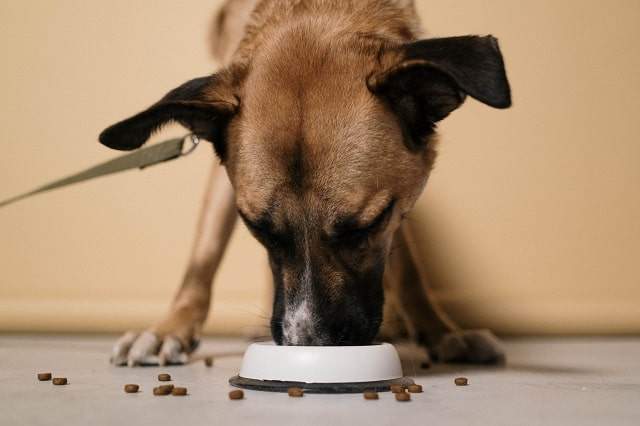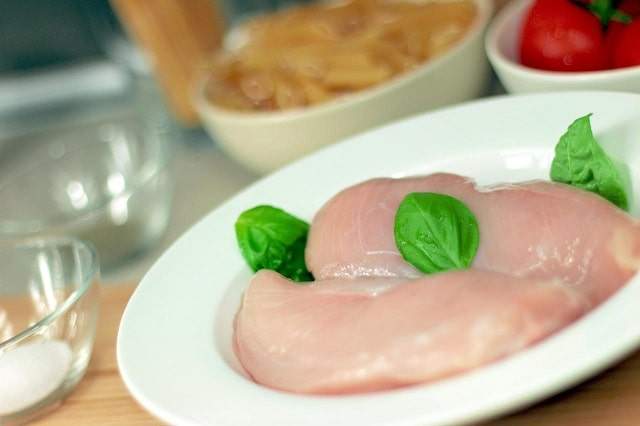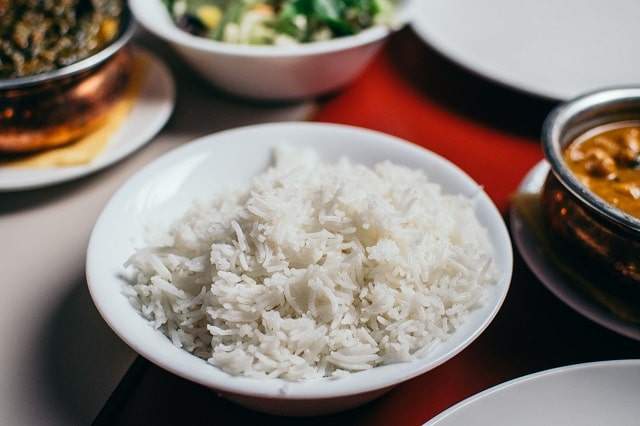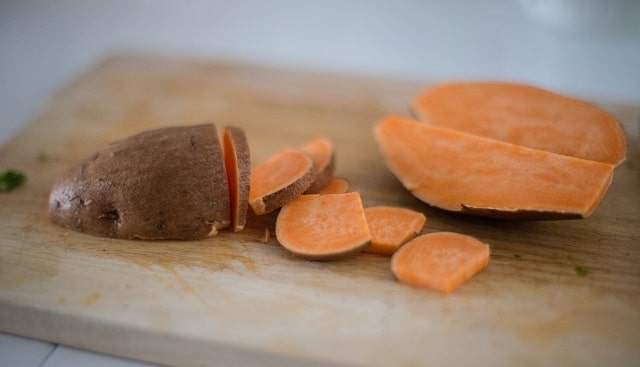‘What can I feed my puppy?’ is usually the foremost question in the minds of new pet parents.
All pets need well-balanced diets to keep them healthy. But young pets, particularly puppies, have a specific set of nutritional needs (which are very different from adult dogs!) to help them grow well.
Here’s the complete list of foods that are both safe and nutritious for your pup.
Greek Yogurt
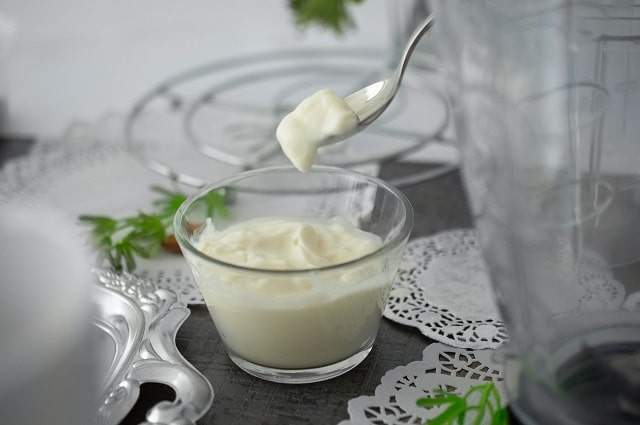
Greek yogurt ticks all the right boxes for what to feed puppies at 3 weeks- it’s protein-rich, provides calcium and is simple to eat and digest.
Plus, it’s super cheap! You can find greek yogurt at any grocery store or gas station. If your puppy gets hungry while you’re running errands, you don’t have to worry about stopping by some fancy boutique that sells super-expensive organic puppy food. Yogurt is the perfect in-between errands snack!
Semi-Moist Food
The perfect time to introduce semi-solid food to your puppy is in the 3-4 week old bracket. Traditionally, this is also the age when the puppy would be weaned of its mother’s milk, so it’s essential to know what to feed puppies at 4 weeks.
Semi-moist food has a soft, mushy texture and can be made by mixing the regular puppy food with a small amount of warm water. If your puppy has trouble eating the mush, you can add a little more water or chicken broth.
Once the pup is comfortable eating semi-moist food daily, decrease the frequency of bottle feedings.
Another common question is when to start feeding puppies wet food. The answer to that is sometime between 6-8 weeks. By this age, your puppy should be eating 3 times a day and be used to very moist food.
At 12 weeks old, they can transition to 2 meals per day. Remember that all puppies are different; some may need to be fed more frequently than others. So consult with your veterinarian when necessary.
Also Read: Choosing The Right dog Bowl for Your Pet
Kibble
Introducing solid food to puppies is an exciting time for both pet and owner.
While many recommend that this transition can be made by the 8th week, do remember all puppies are different. It is better to be a little careful when choosing what to feed a puppy at 8 weeks. They may be eager to try everything, but still have delicate stomachs which require a gradual transition to solid food.
Kibble is an excellent option for this transition as it is easy to chew and full of nutrients that puppies need. Mix a small kibble with some warm water to create a soft paste. Then, offer the paste to your puppy along with their regular food.
If they seem hesitant, try adding more water or warming it slightly. Slowly increase the kibble amount over a couple of days until they eat it dry. With patience, you’ll have them eating like a pro in no time.
If you’re looking for a way to start your pup on solids, consider looking at The Upper Pawside. This website has a wealth of information about feeding your puppy, from the best kibble brands to what kind of containers they should be stored in.
Chicken Breasts
Like most pet parents, you probably have a few go-to foods to feed your pup. But what about when you’re out of dog chow or kibble and have to get creative? What about the same thing you’re having for dinner? Every pet parent has at some point or the other wondered about what human food can puppies eat!
The good news is that there are many human foods that are fit for consumption in the little doggy world as well! And one of the best options is chicken breast.
“Chicken breasts are a great source of lean protein and can be a healthy part of your puppy’s diet. However, when feeding chicken breasts to your puppy, it’s essential to cook them thoroughly to avoid the risk of food poisoning. You can either roast, bake, or grill chicken breasts, or you can boil them until they’re cooked through.”
Once cooked, you can chop them into small pieces or shred them before adding them to your puppy’s food bowl. If you’re feeding your puppy raw chicken breasts, it’s essential to ensure they’re free from bacteria.
You can do this by freezing the chicken breasts for at least 48 hours before feeding them to your puppy, killing any harmful bacteria that may be present.
Rice
As any pet owner knows, what you feed your puppy is just as important as what you feed your children. But many people still ask: what can I feed my puppy? Puppies need a diet rich in nutrients and calories to help them grow and develop properly.
“Rice is an excellent option for teething puppies or sensitive stomachs. It is easy to digest and has a mild flavor that puppies love. In addition, it is an excellent source of complex carbohydrates, vitamins, and minerals.”
Just be sure to cook the rice before feeding it to your puppy, and start with small amounts to see how they tolerate it.
Sweet Potatoes
Sweet potatoes are an excellent supplement to your dog’s diet, providing crucial vitamins and minerals. They contain significant quantities of beta-carotene, which the body utilizes to generate vitamin A and are thus effective antioxidants.
Sweet potatoes include a lot of fiber, which may help keep your puppy’s digestive system in check. The best way to cook sweet potatoes for your pup is to boil or bake them until soft.
If you’re feeling lazy, you can even give your pup a whole sweet potato to chew on. The skin should be removed first since it might be difficult for pups to digest.
Also Read: Pet Care Tips: 5 Essentials for All Dog Parents
Puppies need a diet rich in nutrients and calories to help them grow and develop properly. “What can I feed my puppy” is a question with many options and research needs to be done to ensure you are giving your puppy the best possible chance to grow into a happy and healthy adult dog.
Consulting your veterinarian should always come first when making any significant modifications to your puppy’s nutrition; you must keep in mind that you are ultimately still accountable for what goes into their bowls. Feed them well so that they can live their best life!

